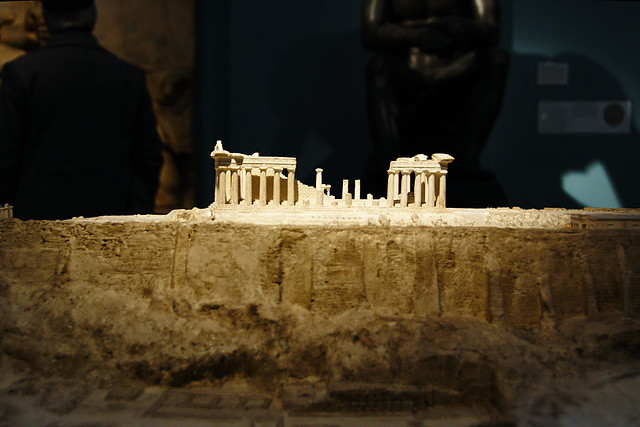In the third episode of The Making of the Modern Arab World Tarek Osman looked at the rise of political Islam since the 1970s. He started by reminding us of the context for this, which he talked about more in the previous episode (post). As of about 1966 Nasser was both the leader of Egypt and the most prominent public face of Arab Nationalism. The state and politics were secular in nature, and to some degree so was the general population – women generally did not go veiled, for instance. Islamist groups like the Muslim Brotherhood were repressed, and their leaders and activists imprisoned, brutally treated, and potentially executed. The regime was also fairly left wing, and pro-Soviet. Then in 1967, with the defeat of the Arab armies by Israel, Arab Nationalism lost a lot of face. Nasser died in 1970 and his successor, Anwar Sadat, changed the focus of the state.
Sadat liked to see himself as “the pious President”, and took pains to present himself as a good Muslim. He backed off on the repression of Islamist groups, releasing many of their members from prison and permitting them to openly take jobs at universities. At the same time he was swinging the political compass of the regime towards the right, and towards the USA and capitalism. He also started to shrink the state involvement in the welfare of the poor. As the country embraced capitalism Sadat removed the subsidies that were artificially keeping the price of bread low – after riots from students and workers who could no longer afford food the subsidies were reinstated.
The Muslim Brotherhood and other Islamist groups took advantage of both the perceived corruption of the state, and the gap opening up in care for the poor. Islamist rhetoric held out the hope that if Islam was fully integrated into the state then politics would be more honest & less corrupt. There was also a prominent notion that the reason the war against Israel had failed was that the Arab states had turned away from religion and so God was no longer on their side. The Muslim Brotherhood were also involved in widespread charitable works – providing for the poor who were being failed by the state, which encouraged people to regard them as a viable alternative to the authoritarian state.
1979 was a year containing three events that were to lead to increased support for Islamist groups across the region. One of these was the revolution in Iran – this might’ve been Shia rather than Sunni but it was proof that an Islamist uprising could overthrow a secular state. Another was the signing of a treaty between Egypt and Israel, which was taken as evidence of the state’s corruption and decline. And thirdly the invasion of Afghanistan by the Soviets pitted Islamist forces (such as the Taliban) against the Soviets – by Cold War logic this meant that the US and other Western groups saw the Islamist groups as their potential allies, and hence worth funding and training.
Another growing influence on the Arab region was the Saudi Arabian regime. The balance of political and economic power was shifting away from places like Egypt and towards the oil countries. Many Egyptians and nationals of other countries went to work in Saudi Arabia, and many of them became more religious and more conservative under the influence of the culture they were now living in. When they returned to their native countries after several years they kept contact with people they knew in Saudi Arabia. Along with funding suitable Islamist groups this was a conduit for Saudi Arabian influence in the politics of countries like Egypt.
Osman talked about how over the next couple of decades (the 80s and the 90s) the Islamist groups were struggling against the “near enemy”, i.e. the regimes of their own states. After the end of the Soviet presence in Afghanistan at the end of the 80s many of the groups that had been involved in that jihad felt flush with success – they felt they had brought down the Soviet Union and the time was ripe for success in their own countries. This was not to be. A Muslim Brotherhood led uprising in Syria was brutally dealt with at the cost of hundreds of thousands of lives, and the breaking of the back of the Muslim Brotherhood organisation in that country. The Algerian civil war, sparked after the army overturned the election of an Islamist leader ended in defeat for the Islamist forces, after the loss of many lives. And in Egypt Mubarak had come to power after the assassination of Sadat by Islamist soldiers (in the early 80s), and brutally cracked down on Islamist groups. Violent protest was undertaken by extremist Islamist groups during the 80s and early 90s, but the Luxor Massacre in 1996 actually caused that to die down. Osman said that public opinion, and opinion of mainstream and even somewhat radical Islamist groups, was appalled and shaken by the massacre and the extremists who’d carried it out were denounced.
So towards the end of the 20th Century the radical Islamist groups were failing in their struggle at against the near enemy. Osman said that this is why their attention began to turn to the “far enemy”. The USA and other Western powers were involved in propping up the secular and authoritarian regimes that the Islamists were struggling against. So groups like Al Qaeda turned their attention outwards towards these foreign powers.
